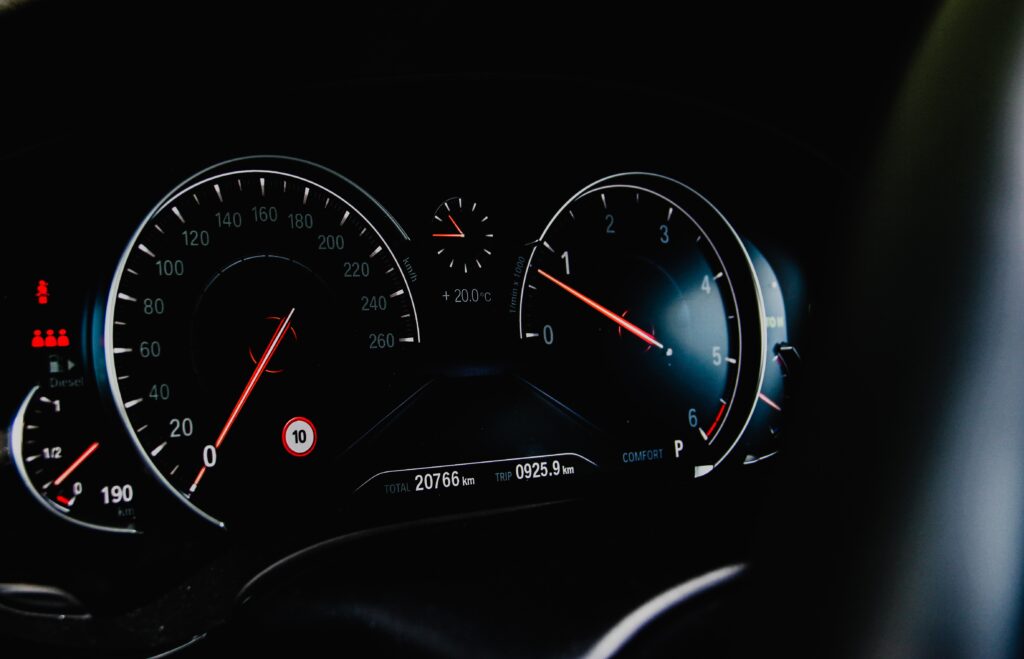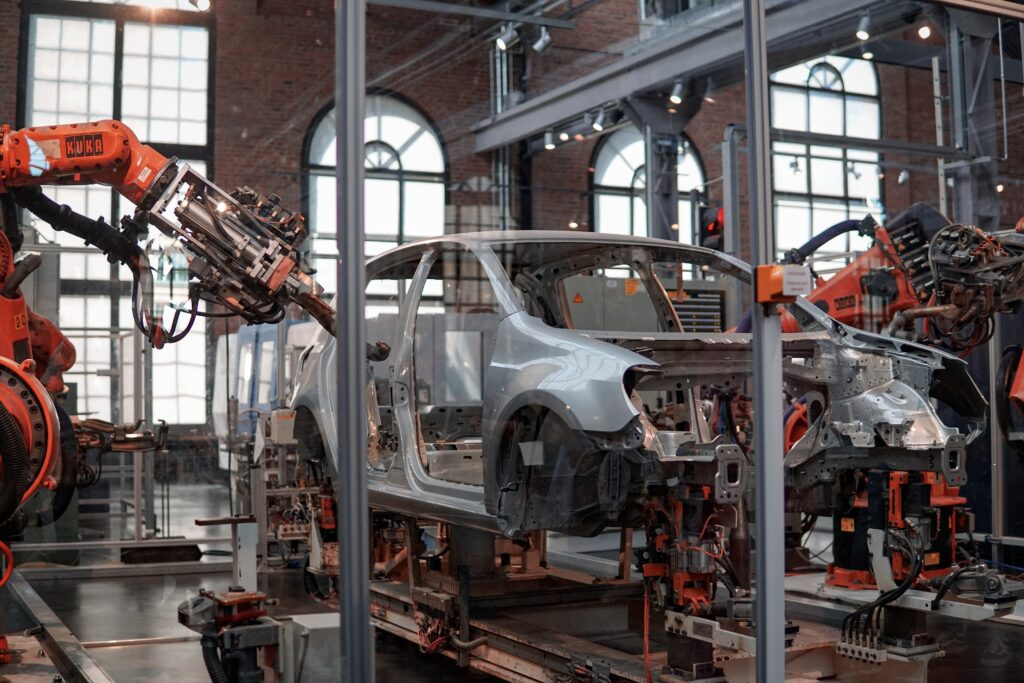Have you ever wondered why your car’s exhaust system makes a popping sound? It can be quite puzzling, especially if you’re not familiar with the inner workings of your vehicle. In this article, we will explore the possible reasons behind this peculiar noise, from a simple fuel-air mixture issue to a more complex problem with the ignition system. By understanding the potential causes, you’ll be better equipped to address the problem and keep your car running smoothly. So, let’s unravel the mystery behind your popping exhaust sound.

Understanding Exhaust Sounds
Basic functions of an exhaust system
The exhaust system in your vehicle serves a crucial role in the overall operations of your engine. Its primary function is to remove the harmful gases produced during the combustion process and guide them safely out of the vehicle. It consists of various components, including the exhaust manifold, catalytic converter, muffler, and tailpipe. These components work together to reduce noise, control emissions, and improve overall performance.
How different sounds occur in exhaust systems
Exhaust systems can produce different sounds, which can vary depending on various factors such as engine size, modifications, and the overall condition of the system. Sounds can range from a deep rumble to a high-pitched whine. Understanding the different sounds that can emerge from the exhaust system is essential in identifying any potential issues or malfunctions.
The normal sounds a functioning exhaust system makes
A properly functioning exhaust system typically produces a low, steady rumble when the engine is running. This sound is a result of the engine’s combustion process and the subsequent flow of exhaust gases through the system. It is important to recognize what is considered normal for your specific vehicle, as any deviation from this baseline sound may indicate a problem.
Defining the Popping Sound
How a popping sound differs from other noises
A popping sound in your exhaust system is distinct from other noises you may encounter while driving. It’s often characterized by short, sharp bursts of sound, similar to the popping of popcorn or a misfiring firework. This sound may not only disrupt the overall engine sound but also draw attention from bystanders, which can be quite alarming.
Why popping is often seen as a concern
Popping sounds in your exhaust system are generally seen as a concern because they can be indicative of underlying issues that may affect your vehicle’s performance and longevity. While occasional popping can be normal, consistent or excessive popping can suggest potential problems that require attention and maintenance.
What a regular popping pattern might indicate
A regular popping pattern that occurs during deceleration or when transitioning from high RPMs to lower RPMs is not necessarily a cause for concern. This phenomenon, known as “afterfire,” is often caused by small amounts of unburned fuel igniting in the exhaust system. However, if the popping becomes more frequent or happens during normal engine operation, it may signify a problem that needs to be addressed.
Reasons for a Popping Exhaust Sound
Rich fuel mixture’s role
One of the common causes of a popping sound in the exhaust system is a rich fuel mixture. A rich fuel mixture means that there is more fuel flowing into the combustion chamber than there is air. This imbalance can lead to fuel not completely burning during the combustion process, resulting in unburned fuel entering the exhaust system and igniting, causing the popping sound.
Implications of timing issues
Timing issues, particularly with the ignition timing, can also contribute to a popping exhaust sound. Ignition timing refers to the precise moment when the spark plug fires and ignites the air-fuel mixture in the combustion chamber. If the ignition timing is off, either too advanced or too retarded, it can cause the fuel to burn improperly and result in popping sounds from the exhaust system.
The impact of worn out or damaged spark plugs
Spark plugs play a vital role in facilitating the ignition of the Air-fuel mixture in the engine cylinders. When spark plugs are worn out or damaged, they may not produce a strong enough spark to ignite the fuel properly. This can lead to incomplete combustion and unburned fuel entering the exhaust system, causing popping sounds.
Significance of manifold leaks
Leaking exhaust manifold gaskets or cracks in the manifold itself can also contribute to a popping sound in your exhaust system. Manifold leaks allow air to enter the exhaust system, creating a leaner air-fuel mixture. This can cause the remaining fuel to ignite in the exhaust system, resulting in popping noises.
Effects of a Rich Fuel Mixture
How a rich fuel mixture occurs
A rich fuel mixture occurs when there is an excessive amount of fuel compared to the available air in the combustion chamber. It can be caused by various factors, including a malfunctioning fuel injector, a faulty oxygen sensor, or a clogged air filter. These issues can disrupt the air-fuel ratio, leading to a rich fuel mixture.
The relationship between a rich fuel mixture and popping sounds
A rich fuel mixture increases the likelihood of unburned fuel entering the exhaust system. When this unburned fuel encounters hot components within the exhaust system, such as the catalytic converter or muffler, it can ignite and produce popping sounds. Therefore, addressing a rich fuel mixture is essential in reducing or eliminating popping noises.
Potential damages resulting from a long-term rich fuel mixture
A long-term rich fuel mixture can have detrimental effects on your vehicle’s engine performance and overall longevity. The excess fuel can cause carbon build-up on various engine components, such as the valves and pistons, leading to reduced efficiency and power. Additionally, the unburned fuel can damage the catalytic converter and other exhaust system components, resulting in costly repairs.

Problems Associated with Timing Issues
How incorrect ignition timing can lead to popping sounds
Incorrect ignition timing can disrupt the combustion process, leading to popping sounds in the exhaust system. If the ignition timing is too advanced, the air-fuel mixture may ignite before the piston reaches the top of its compression stroke. This premature ignition can cause the combustion process to continue into the exhaust system, resulting in pops. Conversely, if the ignition timing is too retarded, the fuel may not ignite completely, leading to pops as well.
Symptoms of incorrect ignition timing
In addition to popping sounds, incorrect ignition timing can cause several noticeable symptoms. These include difficulty starting the engine, poor fuel efficiency, a decrease in overall engine performance, and increased emissions. If you suspect your vehicle may have ignition timing issues, it is crucial to have it inspected and repaired by a qualified mechanic.
Other potential repercussions of incorrect timing
Aside from the popping sounds and symptoms mentioned above, incorrect ignition timing can lead to more severe issues. It can cause the engine to run hotter than intended, potentially resulting in overheating and damage to various engine components. Additionally, incorrect timing can lead to increased wear and tear on engine parts, reducing their overall lifespan.
Top Signs of Worn Out or Damaged Spark Plugs
How spark plugs can contribute to a popping sound
Spark plugs are responsible for initiating the combustion process in the engine cylinders. When they become worn out or damaged, they may not produce a strong spark or ignite the fuel-air mixture efficiently. This inefficiency can result in unburned fuel entering the exhaust system and causing popping sounds.
Signs your spark plugs might need replacing
Several signs indicate that your spark plugs may need replacing, potentially resolving the popping sound issue. These signs include difficulty starting the engine, a rough idle, decreased acceleration and power, and increased fuel consumption. If you notice any of these symptoms, it is advisable to have your spark plugs inspected and replaced if necessary.
The importance of maintaining healthy spark plugs
Maintaining healthy spark plugs is crucial for the overall performance and longevity of your engine. Regularly inspecting and replacing worn-out or damaged spark plugs helps ensure proper combustion, efficient fuel consumption, and reduced emissions. By attending to your spark plugs, you can mitigate the risk of popping sounds and potentially more severe engine issues.

Understanding the Role of Manifold Leaks
Causes of manifold leaks
Manifold leaks can occur due to several reasons, with the most common being deteriorated gaskets or cracks in the manifold itself. Over time, the gaskets can develop leaks or become degraded, allowing air to enter the exhaust system. Additionally, extreme temperatures and vibrations can lead to cracks in the manifold, further exacerbating the issue.
How manifold leaks can lead to a popping sound
Manifold leaks can contribute to a popping sound in the exhaust system by allowing additional air into the mixture. This extra air creates a leaner air-fuel ratio, causing the remaining fuel to ignite within the exhaust system. The resulting pops can be a clear indication of a manifold leak.
Steps to identify and repair a manifold leak
To identify a manifold leak, you can conduct a visual inspection of the exhaust manifold and gaskets for any visible signs of damage or deterioration. Additionally, you can use a smoke machine or a propane torch to identify potential leaks by looking for smoke or uncontrolled combustion near the manifold area. If a manifold leak is detected, it is recommended to have a professional mechanic repair or replace the faulty components to maintain proper exhaust system function and eliminate popping sounds.
Prevention and Maintenance Tips
Regular inspection and maintenance habits
To prevent or address popping sounds in your exhaust system, regular inspection and maintenance are key. Routinely inspecting the exhaust system, including the manifold, catalytic converter, muffler, and spark plugs, can help identify any potential issues before they escalate. Additionally, adhering to scheduled maintenance tasks, such as replacing spark plugs and air filters, can contribute to a healthier engine and reduce the risk of popping sounds.
Signs that your car needs professional attention
While regular maintenance and inspections are crucial, there are instances when professional attention may be necessary. If you experience persistent or worsening popping sounds, poor engine performance, difficulty starting the vehicle, or a significant increase in fuel consumption, it is essential to bring your car to a qualified mechanic. Trained professionals can diagnose and address any underlying issues that may be contributing to the popping sound and ensure your vehicle operates optimally.
How to maintain a healthy exhaust system
Maintaining a healthy exhaust system goes beyond addressing popping sounds. Regularly clean and inspect your exhaust system, ensuring there are no obstructions or visible damage. Additionally, avoid driving through deep water or excessively rough terrain to minimize the risk of damage to the exhaust components. Furthermore, using high-quality fuel and adhering to proper fueling practices can contribute to a cleaner combustion process and reduce the chance of popping sounds.
In conclusion, understanding exhaust sounds, including the distinct popping sound, is crucial in maintaining a healthy and well-performing vehicle. By recognizing the potential causes of popping sounds, such as a rich fuel mixture, timing issues, worn-out spark plugs, and manifold leaks, you can address these issues promptly and avoid potential complications. Regular inspection, maintenance, and professional attention when needed are essential in ensuring your exhaust system operates optimally, minimizing the occurrence of popping sounds, and promoting a smooth and enjoyable driving experience.
